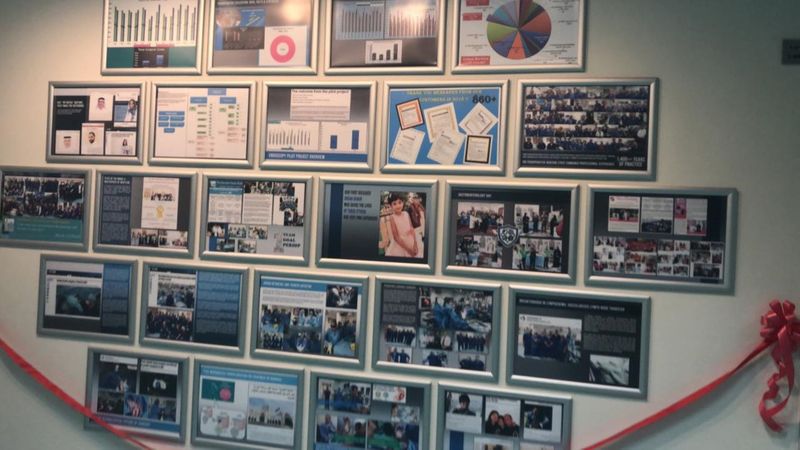
Like Our Facebook Page For Latest News
Dubai: The photograph of the late Dervisiri Tavva, an Indian girl, adorns the wall of fame at Shaikh Khalifa Medical City. The six year old died of severe pulmonary hypertension on July 14, 2019, despite the best efforts to save her.

But that’s not why her picture has been put up. Upon her death, her kidneys and liver had been donated to three others so they could get a new lease of life. Despite their grief at losing their only child, her parents Arun Kumar and Keerti Pusarla felt it was perhaps the little girl’s calling to save the lives of others, so they consented to donate her organs.
The commemoration plaque on the wall of SKMC says: “Our first deceased organ donor who saved the lives of three others. Our very own superhero.”
Adam Jacob John
When Tavva passed away in July last year, Adam Jacob John, 7, who suffered a total kidney failure, got a fresh lease of life, thanks to one of her kidneys. The boy who could never go to school and had to undergo 12 hours dialysis each day, underwent a kidney transplant surgery at Al Jalila Children’s Speciality Hospital in Dubai, with Tavva’s kidney specially transported from Abu Dhabi on the same day.
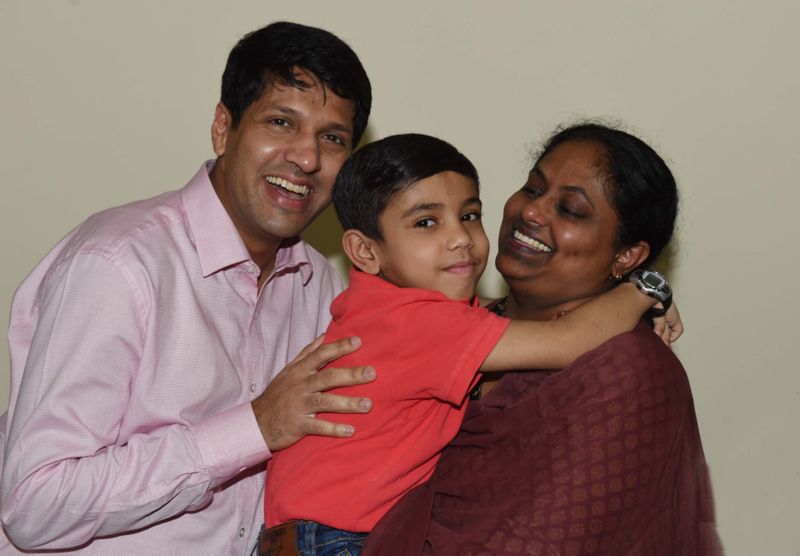
Adam’s parents, Dr Deepak John Jacob, a dentist from Sharjah, and his wife Divya Saira Abraham, are very grateful. “I have never met the parents of the little girl whose kidney saved my son’s life but wrote them a sincere thank you letter telling them how their noble gesture gave my son a chance at normal life,” said the tearful father.
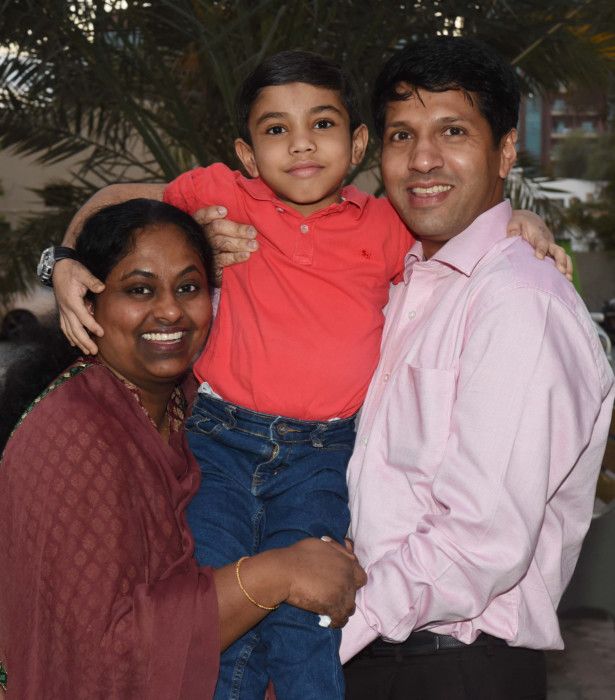
Adam, the second child of the John family born prematurely in 2012, had many complications and was diagnosed with kidney disease when he was six months old at Al Saqr Hospital, Ras Al Khaimah. He was admitted to Dubai Hospital for protracted treatment and dialysis. Once it became clear that the child would require dialysis daily, the family rented out peritoneal dialysis equipment so they could administer a 12-hour dialysis to the him every night.
His mother said: “I have three children and Adam is the second one. It was difficult to see him struggling so much with pain and unable to play or go to school. When we were told Adam’s kidneys had failed we first tried as a family to donate a kidney. But a match could not be made. Until then, every evening for five years, my son would have to undergo dialysis for the entire night. As parents we spent sleepless nights to ensure he got his 12-hour dialysis each day. We kept our faith strong and took Adam to church for the Friday mass without fail. Our prayers were eventually answered through a kind little angel.”
I have never met the parents of the little girl whose kidney saved my son’s life but wrote them a sincere thank you letter telling them how their noble gesture gave my son a chance at normal life.
Dr Deepak John Jacob, Adam Jacob’s father
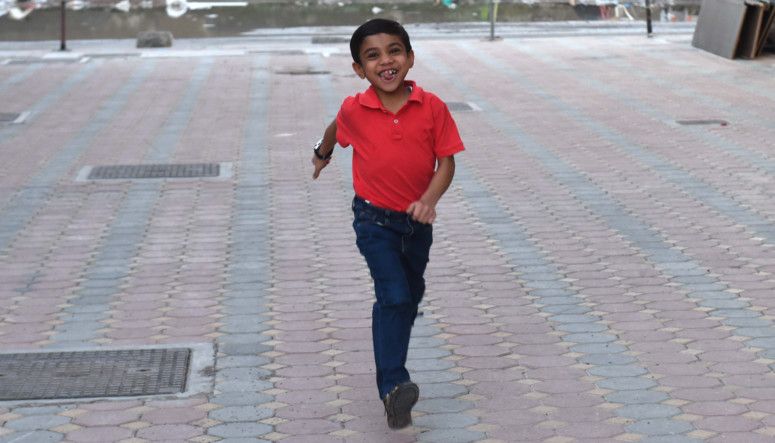
It’s nearly seven months after the transplant. Although Adam will be on immunosuppressants for life, the Johns said, “We don’t mind the medication and (monthly) check-ups as the continuous monitoring keeps us vigilant. We are happy that after the transplant, there is no more dialysis. Adam is an active boy who loves playing cricket, prays regularly, has a set of new friends and is looking forward to going to school.”
Reem Anwar Rashed
The youngest in a family of five children, Reem Anwar Rashed, a seven-year-old Jordanian, has also undergone a life-changing kidney transplant. Her grandparents, parents and four siblings are very thankful.
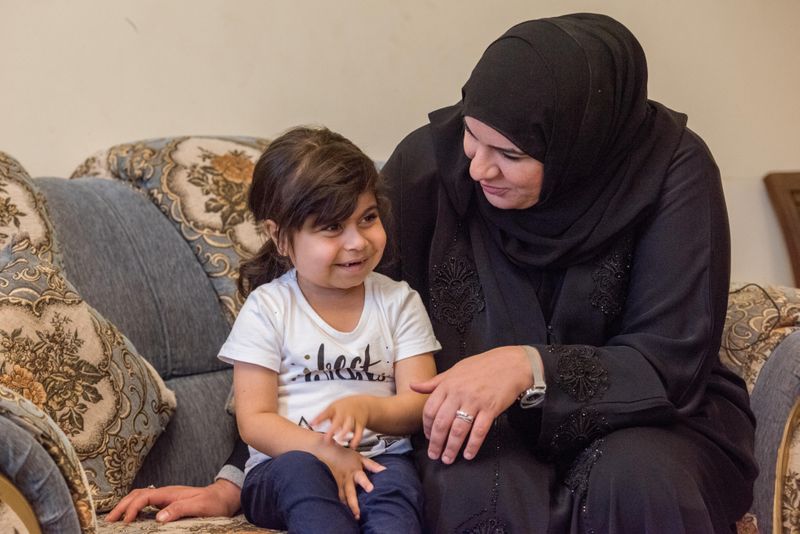
Reem received a kidney in November 2018 from a deceased Abu Dhabi patient that put an end to six years of dialysis.
The little girl, who was unable to go to school and was very sickly, is now in kindergarten at Al Himaya school, Dubai. Reem’s grandfather and father, both of whom work with the Dubai Police, said although they were trained to be brave, it was getting very difficult for them to come to terms with Reem’s suffering as she required dialysis every alternate day for six years and was living in and out of hospital beds.
Post-transplant, Reem, is an active child and loves playing outside with friends. “I want to be a doctor when I grow up,” she said.
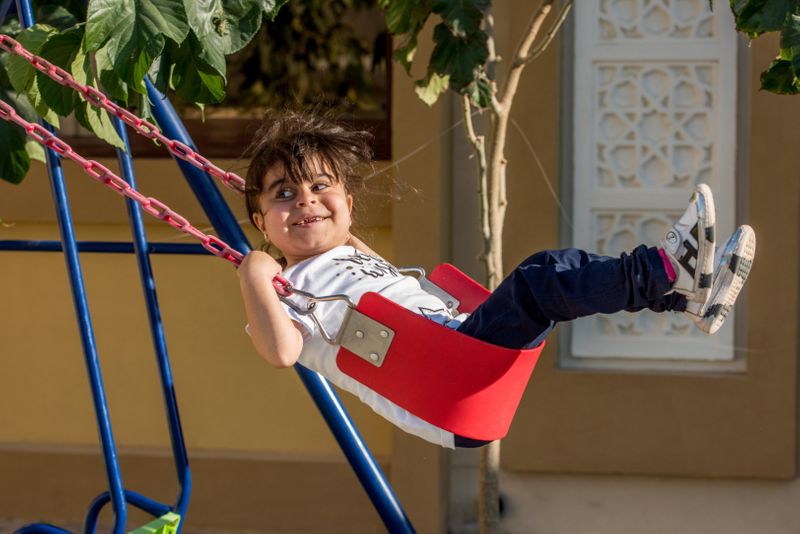
Her mother Suhair Nimer said: “Reem was diagnosed with kidney failure at two months and was undergoing dialysis since then. She had hair all over her face, was puffed up with a lot of water retention and was stunted in her growth. She would cry a lot and we could not see her in so much pain.”
Nimer, who already had donated one of her kidneys to her second son who also suffered from congenital kidney failure, could not help Reem herself. The rest of the family could not find a tissue match.
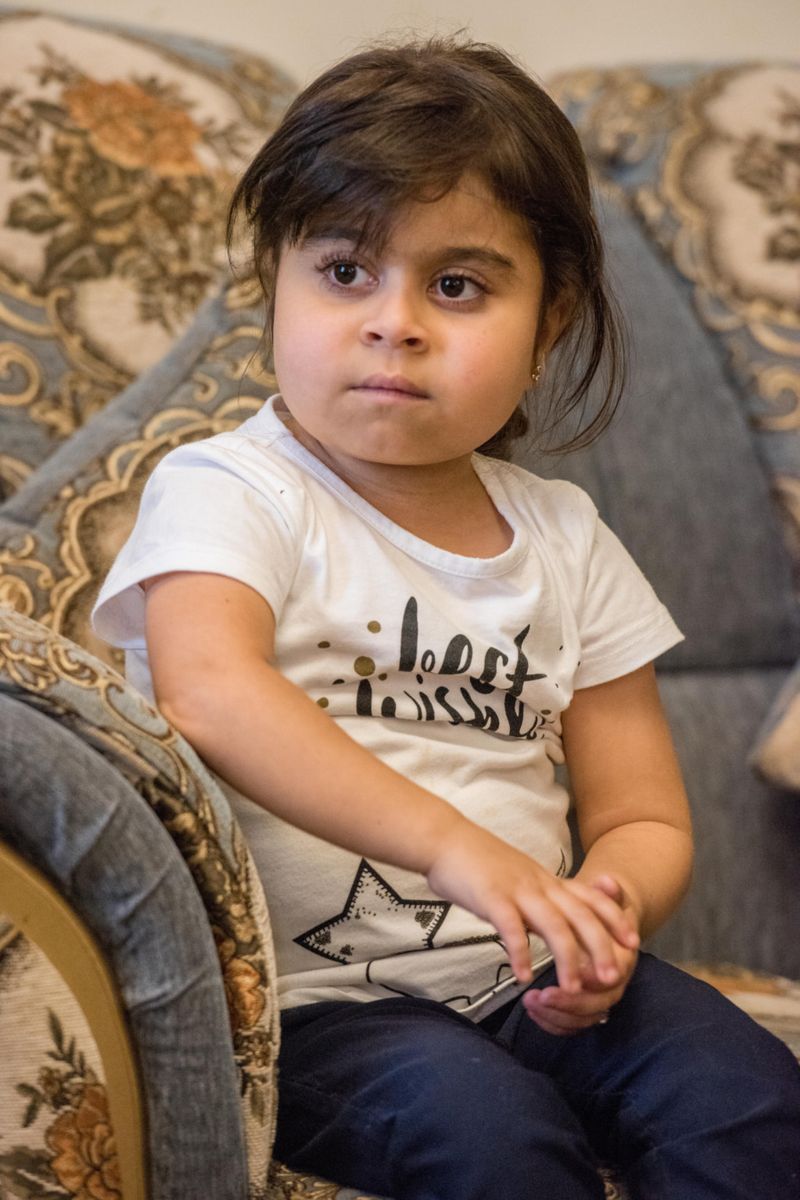
As Nimer recalled, Reem lost her right eye and would have peritoneal dialysis at home. Later, she had to be admitted to hospital for haemo dialysis. But there was light at the end of the tunnel when the hospital notified them of a matching donation from a deceased patient. “Its been one year and two months since the transplant and the transformation is amazing. Although my daughter lost an eye, she is brave and says she can live with that. All the pain of dialysis is gone. It is so nice to see her play, eat and smile again.”
Surgeon speak
Dr Farhad Janahi, Assistant Professor at the Mohammad Bin Rashid University, is a consultant urologist and transplant surgeon in Dubai. Ever since the cadaver organ transplant law came into effect, Dr Janahi has conducted 11 cadaver kidney transplants in Dubai. Of these, 10 adult transplants were carried out at the Mediclinic City Hosptial and four transplants in children at the Al Jalila Children’s Speciality Hospital in Dubai.
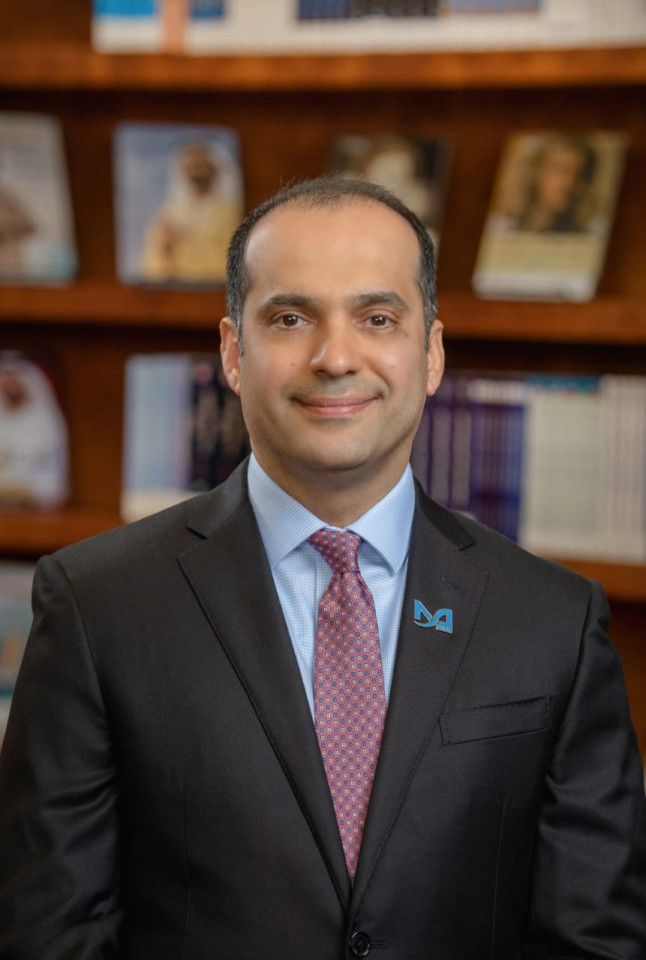
Dr Janahi told Gulf News it is imperative that residents of UAE register as donors on the Ministry of Health and Prevention’s organ donation app called Hayat. “It is important to increase awareness of the life-changing impact organ donation has on the lives of those suffering from total organ failure. The list of those waiting for donations is long while those of recipients is still short. We can change that with greater awareness in society.
“Usually organ transplant is covered by insurance. The average cost for a kidney transplant is around Dh200,000, while the cost of per dialysis is anything between Dh800-1,500. The total cost of dialysis sessions that a patient requires in the long run ( at least three times a week) far exceeds the cost of a kidney transplant,” he added.
What the law says
Ever since the UAE promulgated a law for donation of organs and tissues from both living and deceased donors in accordance with the provisions of Federal Decree No 5 of 2016, several lives have been saved.
Under the National Progamme for Organ Transplantation, anyone in the UAE regardless of nationality, can donate or receive an organ, subject to clearances. The Ministry of Health and Prevention created the Hayat App which has over 15,000 people registered as potential donors since 2018.
While options for living donors to donate organs is limited to kidneys and liver, the law’s introduction of deceased donors became a real game changer, infusing hope for several people waiting for organ transplants.
Six transplant centres in the UAE
1. Cleveland Clinic Abu Dhabi
2. Shaikh Khalifa Medical City Abu Dhabi
3. Medicliniic City Hospital, Dubai
4. Al Jalila Children’s Speciality Hospital, Dubai
5. Dubai Hospital
6. Al Qassimi Hospital, Sharjah
How to register for receiving a donor kidney
Any UAE resident (nationals or expatriates) suffering from end stage renal disease can register on the waiting list for kidney transplant at one of the six transplant centres. Dr Janahi said: “A patient is diagnosed as suffering from end stage renal disease if he or she has total kidney failure and requires dialysis at least three times a week. Usually live organs from donating relatives is the first option. However, when that is not possible because of a lack of match or any other circumstances, such patients can register for a cadaver organ transplant.”
Such a patient can through his attending nephrologist where he or she is undergoing dialysis register as a recipient for the organ.
Like Our Facebook Page For Latest News
The post How UAE organ transplants impact lives appeared first on The Wealth Land.




GIPHY App Key not set. Please check settings